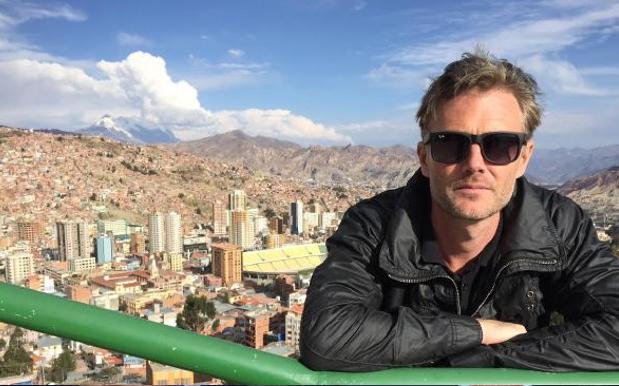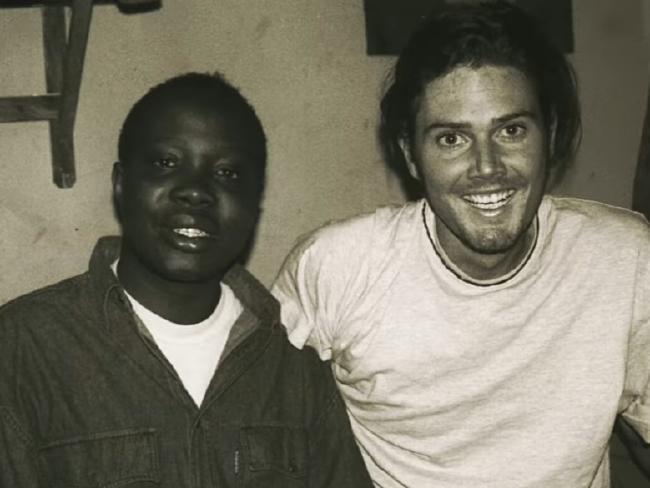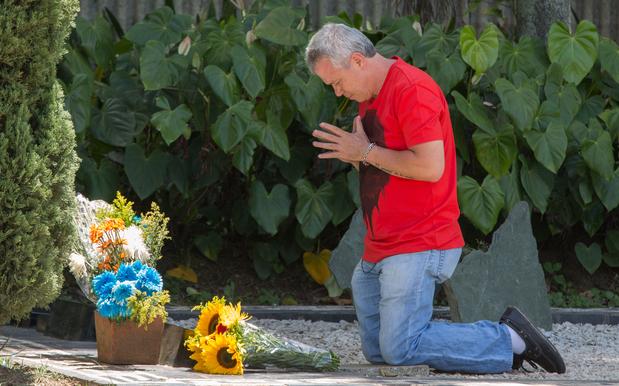
If you’re Australian and you were in school or university during the noughties, there’s a pretty high chance you read or at least encountered Rusty Young‘s 2003 book Marching Powder, purely by virtue of the fact that it was about cocaine. It really doesn’t take much to encourage Aussies to read about cocaine.
But for Young, a University of New South Wales law graduate, Marching Powder was about one of the most fortuitous events of his life. He was backpacking in South America when he encountered the story about Thomas McFadden, an English drug trafficker who was incarcerated in the notorious San Pedro prison in La Paz, Bolivia. San Pedro is a unique setup for a prison – it operates more like a miniature city, with inmates buying and renting their accommodation within the complex, a drug-based economy flourishing, and elected leaders maintaining a remote semblance of law and order. Usually through stabbings.
Young bribed guards to allow him to stay within the prison’s walls for three months, with McFadden, and Marching Powder was the result. More than a decade later, a unique project gave him the opportunity to return to La Paz and explore more deeply the drug trade he first experienced in Bolivia.

McFadden and Young in San Pedro
That project is the documentary Wildlands, released in conjunction with the recently launched tactical shooter Tom Clancy’s Ghost Recon Wildlands, an Ubisoft game set in a speculative near-future Bolivia which has been turned into a narco-state by a drug cartel.
The doco, hosted by Young, was an opportunity to reconnect with McFadden and the world he documented in Marching Powder, and also to gain a broader understanding of the supply chain of illegal drugs.

McFadden and Young, returned to La Paz
Along the way he spoke to a number of people, from DEA agents to cartel hitmen and even legendary American cocaine smuggler George Jung – the man best known to contemporary audiences via Johnny Depp‘s performance in Blow. Of all of them, his favourite moment was reconnecting with his friend McFadden.
“Being with Thomas in San Pedro was definitely a highlight,” Rusty told PEDESTRIAN.TV. “After all these years it was still very friendly and casual. You know – like ‘Hey Rusty!’ ‘Hey Thomas!’ That kinda thing.”
“He was also the most pleasant interview, too, of course.”
He says the least pleasant was John “Popeye” Velasquez – a former hitman for legendary cartel kingpin Pablo Escobar. Whereas Rusty expected to run into people whose perspectives on the drug trade he couldn’t relate to and might not agree with, the sheer ruthlessness with which Popeye recounted his many murders – including women – was a little hard to swallow.
“Yeah, he was clearly a pretty bad dude.” Perhaps a slightly understatement for a guy who has admitted to killing 300 people and is suspected of being responsible for up to 3,000 more.

John “Popeye” Velasquez at Pablo Escobar’s grave
By revisiting Bolivia, Rusty says he’s fleshed out his perspective on the drug war through Wildlands. Even speaking to retired DEA agents Mike McManus and Mike Vigill – who he assumed he was going to virulently disagree with when it came to US policy in Central and South America – was eye-opening.
“I mostly had a perspective from being in Bolivia so much,” Rusty tells me. “In Bolivia, the problems that the DEA are concerned with – cocaine, drugs, all that – are considered a Western problem, not a problem for Bolivians. So there’s obviously some animosity there.”
“But speaking to Mike McManus and Mike Vigill changed my perspective a little bit – I met two guys who were just doing their bit and genuinely wanted to make things better, which I didn’t necessarily expect. You know, it wasn’t a politics thing so much.”
The one question that kept coming up at the Q&A screening of Wildlands from the audience was a simple one: how do we solve the problems presented by the drug war and cartels? Is it legalisation? But Young says that it is a complex question with a number of influences and considerings – and not something that the documentary set out to answer.
“I wanted to come in with no prejudices and no preconceptions, and just explore the different personal perspectives and experiences on this thing – obviously centred on Bolivia. Views are always skewed and there’s always stuff we don’t know – I wanted to just meet these people who are on the ground and basically amongst it all.”
“We didn’t really set out to find solutions, we just wanted to see the drug war as it is.”
The Wildlands doco is coming soon. Ghost Recon Wildlands is available for Xbox One, PlayStation 4 and Windows PC.
Photo: Rusty Young.



